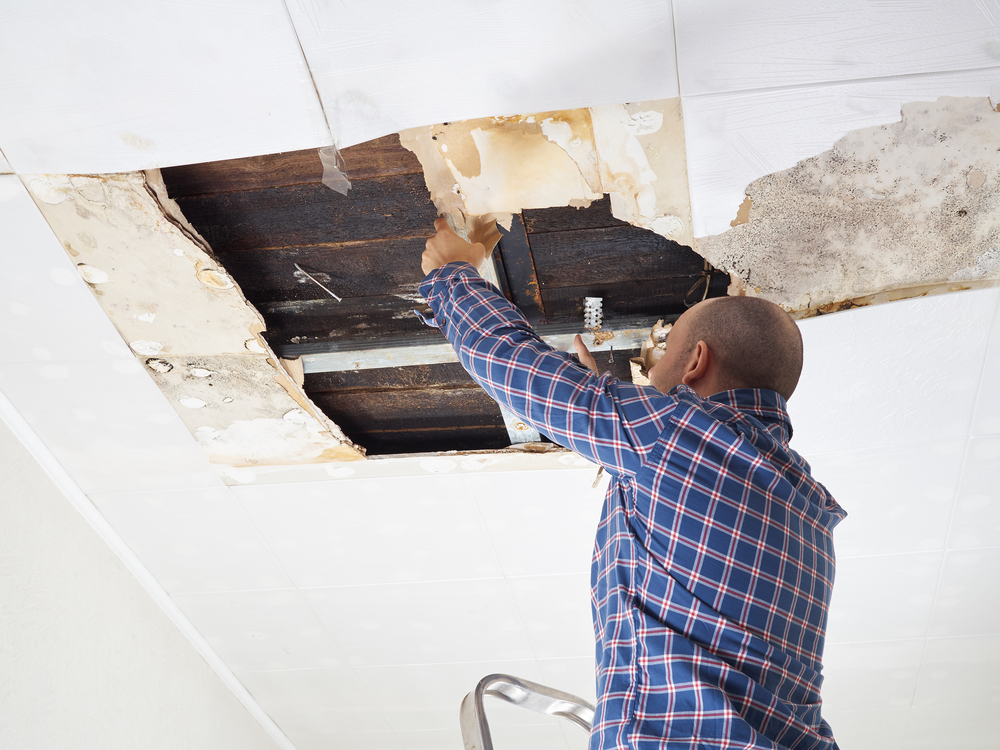The last thing any homeowner wants to be dealing with is damage to their property. Unfortunately, taking care of this damage is a part of home ownership and there is bound to be issues that come up over time. One of the more common, and frustrating, problems that arises is water damage. With an expensive repair cost of $3 to $4 per square foot on average, learning the signs of water damage and how to prevent it can save you money in the future.
Common Signs of Water Damage
Given the high cost associated with repairing water damage, it’s important to learn how to spot the common signs that this issue is happening. By addressing the problem earlier on, you can reduce the price you have to pay for restoration. Below are some of the most common signs that your home has a water damage problem:
- Peeling, bubble, or flaky paint in the home
- Mould growth coming out of the walls or dark place
- Dark brown water rings on walls or ceiling
- Musty smells emanating from unknown origins
- Health issues emerging
- Odd noises or dripping sounds that cannot be located
5 Ways to Stop Water Damage from Occurring
Any of the above signs of water damage should be immediate reason to look into water damage restoration Denver services before the issues gets worth. However, the following five tips can help anybody stop water damage from occurring in the first place:
Clean your gutters every few months
One of the most common causes of water damage in a home is a clogged gutter. While gutters are supposed to carry water away from the home, severe weather can quickly cause a gutter to be overwhelmed and clogged. This can result in water leaking out and dripping down onto the walls of your home. Every couple of months, it’s best to inspect your gutters for signs of overflow or other issues.
Understand your water main and how to shut it off
In case the cause of water damage in your home is an uncontrolled water main, it’s important to know how to operate your own. Most shut-off valves to your specific water line are just outside the exterior of your home. In most cases, if you walk around to the side of your home there will be a valve sticking out of the wall of your home. It may or may not be labelled but twisting this valve will almost always control the water entering your home.
Install leak detection devices
Leak detection devices can be an excellent investment for a home to ensure that unnoticed leaks do not occur. These devices can be placed in strategic locations around a home where a water leak may occur. Should a leak start, you will be alerted right away, and the issues can quickly be addressed before it becomes serious enough to be a major financial problem.
Maintain all of your appliances
Another common cause of water damage in a home is the malfunctioning of appliances. Whether it is the pipes in a bathroom or even the connector to a washing machine or the fridge, there can be problems with the water line. By maintaining the health of these appliances, however, a person can reduce the risk of water damage via degradation of parts within the home.
Check hoses and faucets on a regular basis
Finally, all homeowners should inspect the hoses and faucets around the home on a regular basis to make sure they aren’t having serious issues. Turn off all faucets and make sure there is no drip occurring under the sink or countertop where that faucet is located. Additionally, check any exposed hoses for signs of wear and tear such as cracks or breaks in the hose. On top of all of this, keep an eye on your water bill for any abnormal movements which may indicate water is leaking somewhere in the home.
Restore your home to peak condition
Making the choice to not address water damage in a home when it occurs can have devastating consequences. From ruining the infrastructure to even putting the structural integrity of a home at risk, water damage can have serious repercussions. Use the above tips to stop water damage from occurring in the first place, but also learn to spot the signs of water damage in your home so that you can fix the problem before it becomes worse if it ever occurs.

































